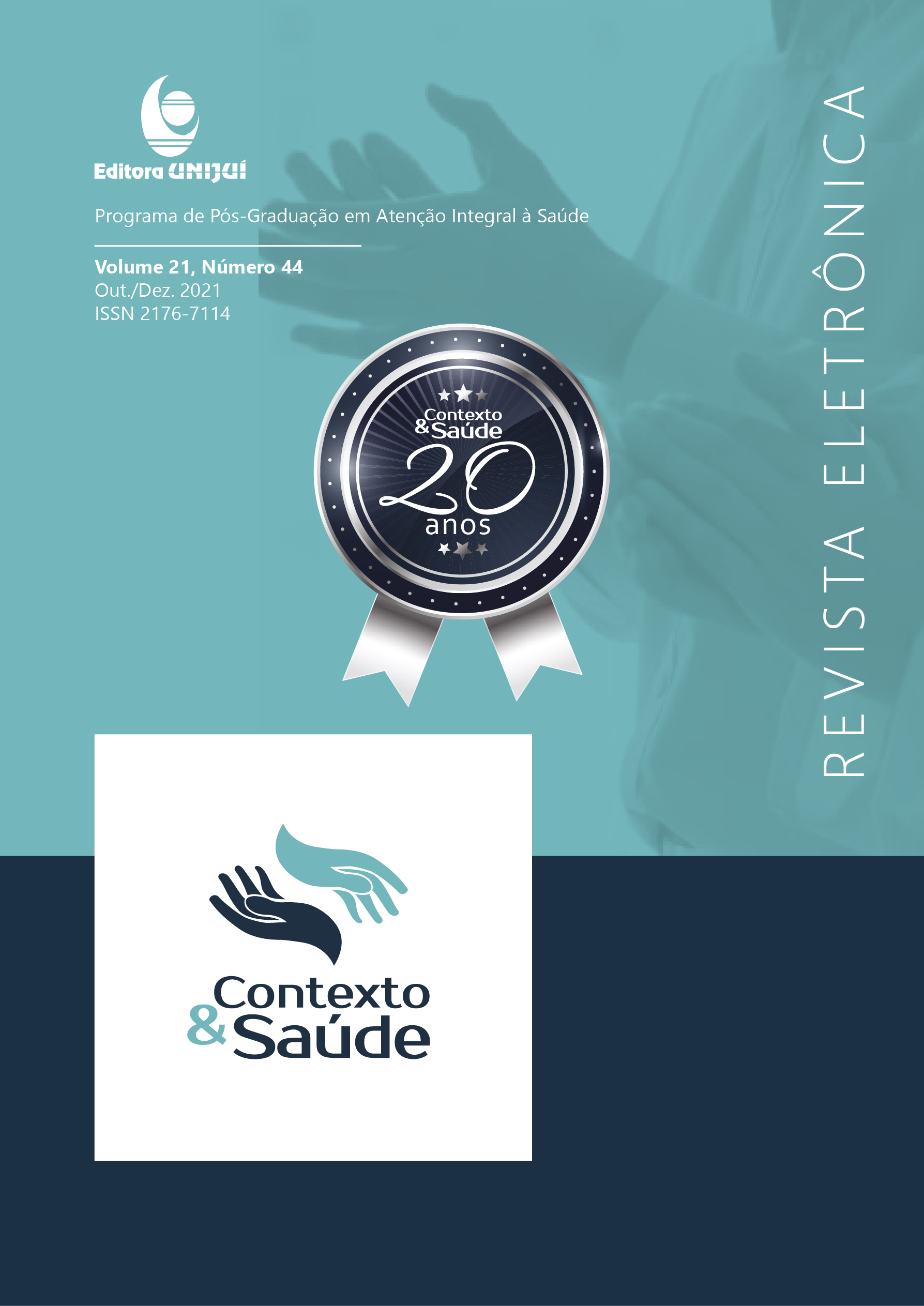ESTRATÉGIAS DE EDUCAÇÃO PERMANENTE UTILIZADAS EM UM SERVIÇO DE ATENÇÃO PRIMÁRIA À SAÚDE
PERMANENT EDUCATION STRATEGIES USED IN PRIMARY HEALTH CARE SERVICE
DOI:
https://doi.org/10.21527/2176-7114.2021.44.11941Keywords:
Primary Health Care. Education. Health Policy. Interprofessional Education.Abstract
Permanent Education Strategies used in Primary Health Care Service
Abstract: The Permanent Health Education (PHE) is a strategy that searches to transform the practice and organization of the work process from the demand of its own work. A exploratory, descriptive, qualitative research, case study type, that aimed to unveil the arrangements built by the health team that allowed the work management during the qualification program of the Primary Health Care. The data was collected in the period of July 2018 to April 2019 through observation-participant study tool and semi structed interviews with workers of a Family Health Care Unit in a city of Paraná. The results showed many arrangements developed by the work team: general and staff meetings, joint effort for risk stratification and setting-up groups for the users. The protagonism of the workers enabled the program to be a space for PHE. It is concluded that the seal drove the team to develop and work in cooperation. The PHE developed by the staff gave the opportunity to minimize the logics of the vertical process catch and give quality to its arrangements.
Downloads
Published
How to Cite
Issue
Section
License

This work is licensed under a Creative Commons Attribution 4.0 International License.
By publishing in Revista Contexto & Saúde, authors agree to the following terms:
The works are licensed under the Creative Commons Atribuição 4.0 Internacional (CC BY 4.0) license, which allows:
Share — to copy and redistribute the material in any medium or format;
Adapt — to remix, transform, and build upon the material for any purpose, including commercial.
These permissions are irrevocable, provided that the following terms are respected:
Attribution — authors must be properly credited, with a link to the license and indication of any changes made.
No additional restrictions — no legal or technological measures may be applied that restrict the use permitted by the license.
Notes:
The license does not apply to elements in the public domain or covered by legal exceptions.
The license does not grant all rights necessary for specific uses (e.g., image rights, privacy, or moral rights).
The journal is not responsible for opinions expressed in the articles, which are the sole responsibility of the authors. The Editor, with the support of the Editorial Board, reserves the right to suggest or request modifications when necessary.
Only original scientific articles presenting research results of interest that have not been published or simultaneously submitted to another journal with the same objective will be accepted.
Mentions of trademarks or specific products are intended solely for identification purposes, without any promotional association by the authors or the journal.
License Agreement (for articles published from September 2025): Authors retain copyright over their article and grant Revista Contexto & Saúde the right of first publication.

